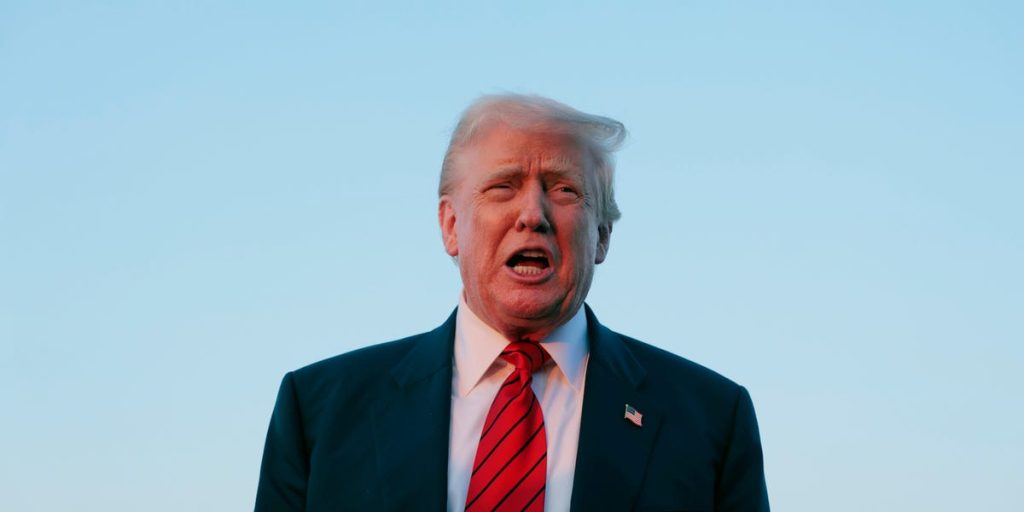“Make Europe’s tech ecosystem great again” might not fit on a Trump campaign badge, but it’s something he might unintentionally be delivering on.
At least, that’s what investors and founders on the continent are betting on as the US has become more protectionist with its economic policies and a less reliable ally for Ukraine.
It’s spurred investors in Europe to put more capital into defense startups, and tech companies and politicians to embrace so-called tech sovereignty in areas like AI and climate.
“There’s been a shift in deployment targets,” Flavia Levi, a deep tech VC at Europe-based Join Capital, told Business Insider. “Now, we’re talking about how money should be going into strengthening the critical technologies of Europe.”
European founders and investors also sense an opportunity.
Six months into his second term, Donald Trump’s sweeping tariffs and his “Big Beautiful Bill” have unsettled the US tech sector. They have slashed funding for clean energy projects, inflated manufacturing costs for hardware startups, and complicated visa requirements for global talent entering the country.
Investors are backing Europe’s defense startups
Globally, defense tech has been a top focus for investors in 2025 — but especially so in Europe. Last year, defense startups on the continent raised a banner $2.4 billion, per PitchBook data. This year, they’ve already clinched $2.11 billion — with notable raises coming from the likes of Helsing and Quantum-Systems.
Related stories
The Trump administration’s unpredictable relationships with Ukraine and NATO have been “a further wake-up call for the European continent to seek military and economic independence,” said Alexander Lange, general partner at VC fund Inflection. He added that it’s galvanizing a whole generation of founders to pursue “meaningful challenges in energy, compute infrastructure, manufacturing, and defense.”
Russia’s attack on Ukraine in 2022 reminded Europe that war is a tangible reality on the continent, Matthew Wright, UK lead at defense tech startup Delian, told Business Insider.
“Trump accelerated a lot of the thinking that was in place already,” Wright said. “It encouraged European governments to spend more on defense so they don’t have to rely on the US or third parties.”
Trump’s bashing of ESG policies may have also indirectly influenced investors’ approaches to European defense tech startups.
“Historically, there has not been a lot of money in defense tech, because a lot of VCs and sometimes LPs have clauses whereby they agree not to invest in defense,” said Levi. Limited partners, which provide capital for VCs, have historically gravitated to companies that “tick off ESG boxes,” instead of building weapons — but this has started to change, she added.
“LPs have started to change their investment thesis, and they’re removing these clauses so VC funds have more freedom to invest in defense-related technologies,” she said.
VCs are championing European tech sovereignty
Defense isn’t the only sector getting extra investor attention in the Trump 2.0 era.
This year, European government leaders such as France’s Emmanuel Macron and the UK’s Keir Starmer have committed billions in funding toward national AI ventures, often around “AI sovereignty” — the idea that a country or region should have control over the governance of its AI technologies and infrastructure.
At London Tech Week in June, Arthur Mensch, the cofounder and CEO of OpenAI rival Mistral, said that trade tensions between the US and Europe had “accelerated conversations” about Europe becoming less dependent on US tech infrastructure. That same week, the Paris-based startup announced a partnership with Nvidia to establish sovereign computing infrastructure in France.
Europe has also been stepping up in response to Stargate, the US’s $500 billion AI infrastructure project announced in January, Roxanne Varza, director of startup incubator Station F, previously told Business Insider.
At the February AI Summit in Paris — weeks after Trump announced Stargate in the White House — key corporations, VCs, and founders pledged to invest up to $150 billion in capital into Europe’s AI ecosystem over the next five years.
It’s a significant amount of capital for Europe, whose startups have long lagged behind their US counterparts when securing VC funding. Critics attribute this gap to the continent’s stringent regulations and fragmented ecosystem. In 2024, startups on the continent raised $51 billion in VC funding — trailing the $190 billion secured by US startups the same year.
Trump’s industrial policy is also causing ripple effects for climate startups in the US. Many are eyeing Europe as a haven for climate tech innovation and government funding at a time when federal funding for clean energy programs is being slashed.
In all, founders and VCs in Europe are banking on a “historic opportunity” to establish a more coherent identity and strategy in the global technology race, said Julien Codorniou, general partner at 20VC. “We must position ourselves as a refuge for anyone who believes in technology, science, progress, and meritocracy.”


